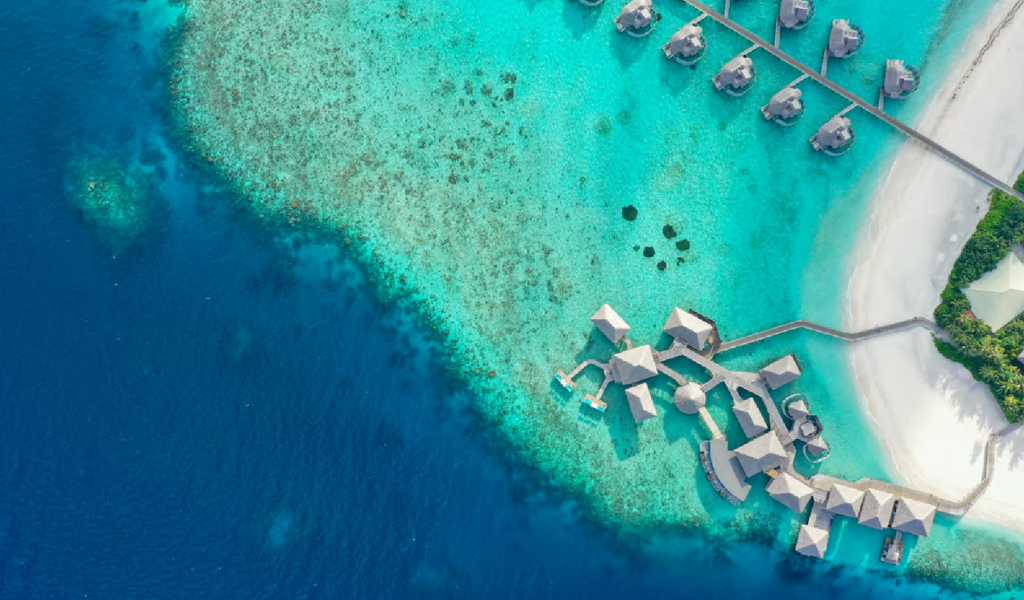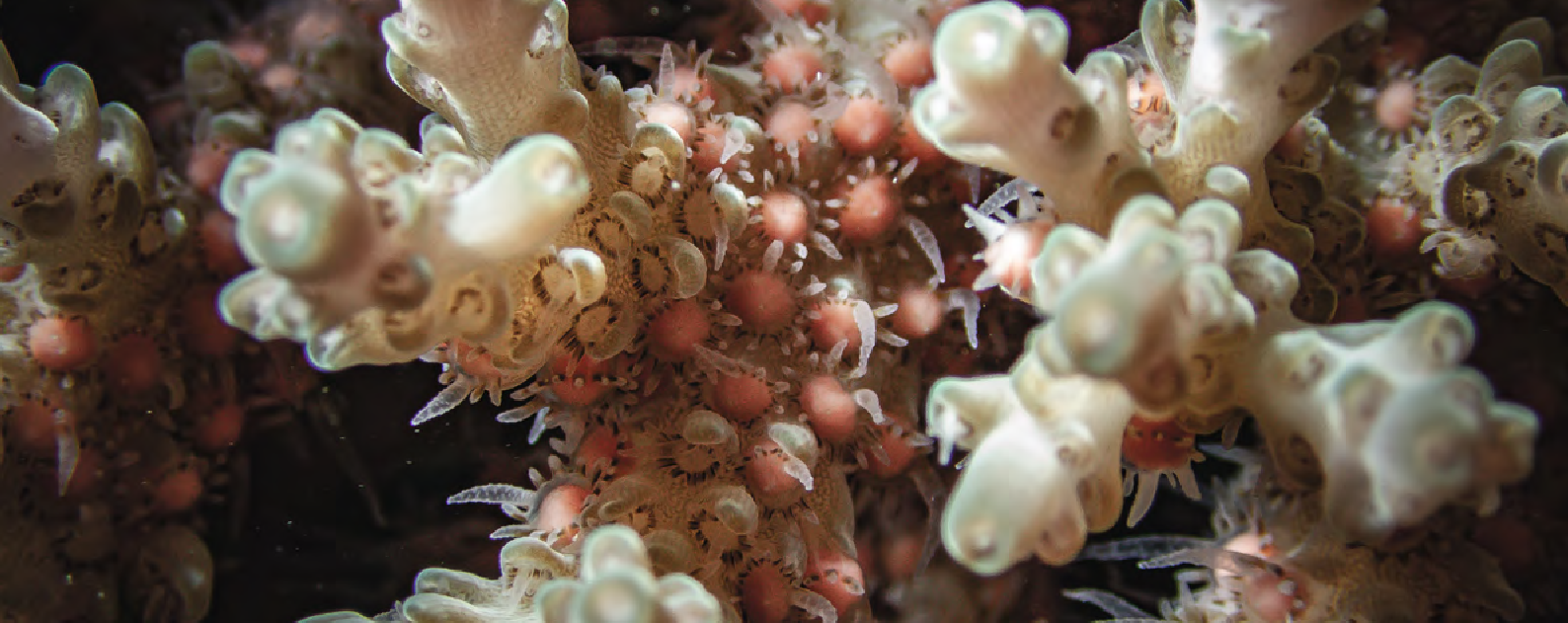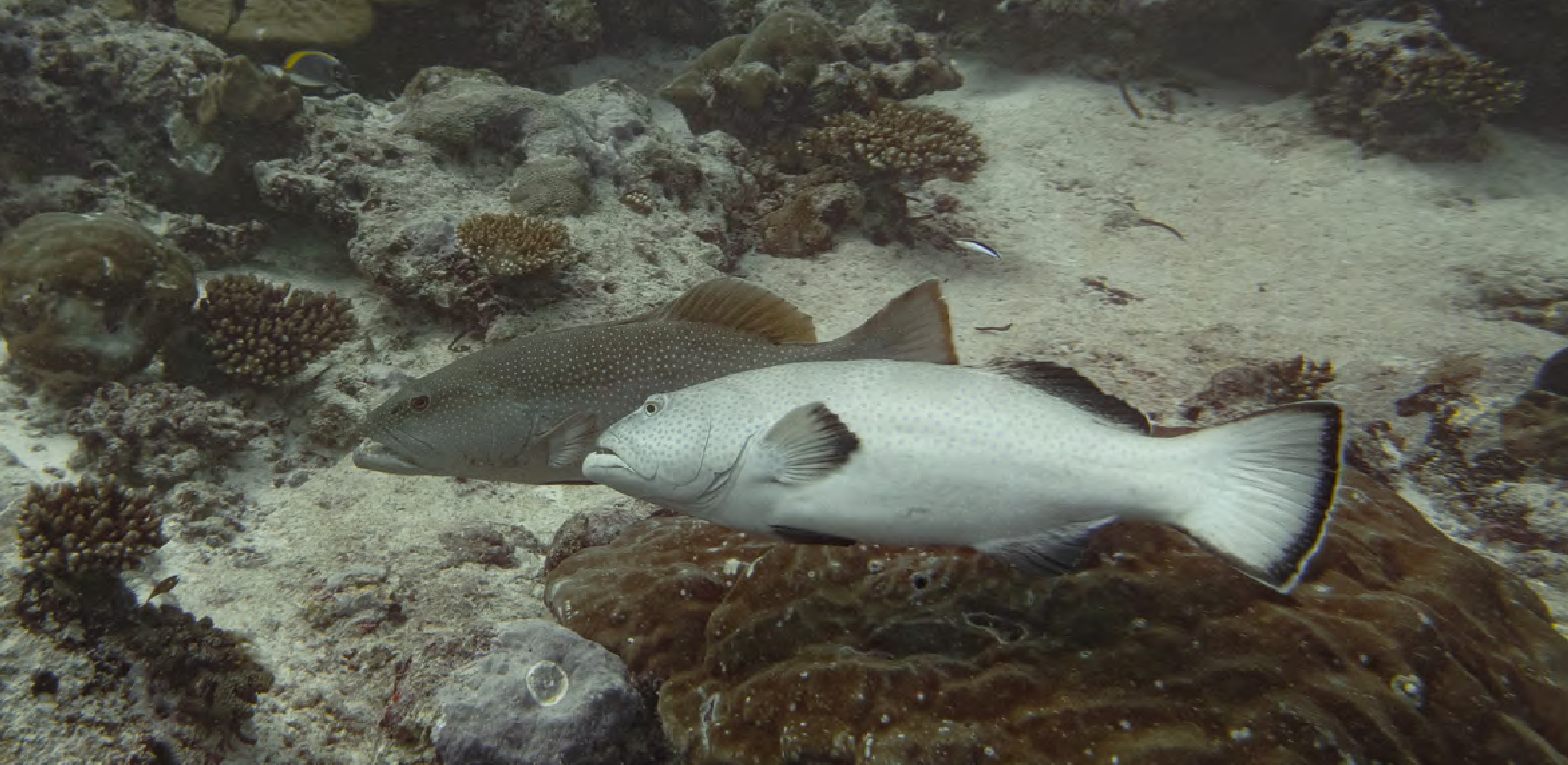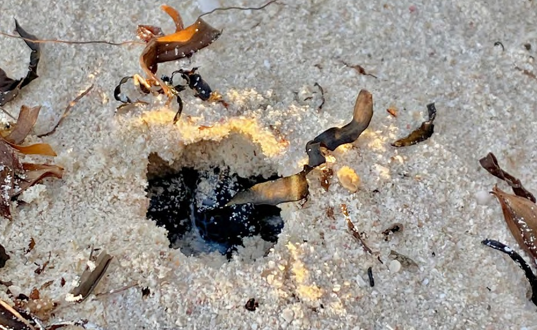

Have A Look Into The Blue Green October At Six Senses Laamu
Sunday 13th of November 2022
Every month, the Maldives Underwater Initiative (MUI) is up to some exciting things on the conservation and protection front. This October is no different with an extensive list of events to mark the month. Have a look into some of the key occurrences for the month of October.
Completion of Coral Recruitment Surveys
After three months of study, the coral recruitment surveys are successfully completed with hopeful results. During the study, the differences in coral recruitment in various reef locations, types and depths were investigated. Over 700 quadrats were utilized across 13 sites where corals were counted and ranked into three different size classes.
Early findings of the survey are suggesting a higher recruit density in channel reefs which can aid the protection of these vital areas. It is only by studying the natural recruitment of sites that marine biologists can identify whether coral restoration is required or not. Hence, this survey will positively impact conservation efforts in the future as well.

Signing of MoU with Island Council of L. Hithadhoo
Blue Marine Foundation and MRR signed a Memorandum of Understanding (MoU) with L. Hithadhoo island council to extend support in conserving the marine ecosystems in the Hithadhoo Baaneykolhu area. Deemed an ecologically prominent site in Laamu, effective protection will promote the long-term health of this rich biodiversity.
Under the MoU, the signatories will work to conserve the area while supporting the economic and social well-being of community. Moreover, it will also aid in building island-level capacity for marine management and involve the youth in citizen science and marine research.
Grouper Spawning Events
Blue Marine Foundation and Maldives Resilient Reefs (MRR) have partnered to conduct the first of three formal grouper surveys. The surveys are carried out around the new moon in the months of October to December at reefs where groupers are known to spawn. Data will be collected on 4 different species and the estimated size of each individual.
Spawning is a phenomenon where large numbers of groupers migrate and congregate in the same place to broadcast their sperm and reproduce at the same time. For decades, Maldivian fishermen have been exploiting these large spawning events for fishing. Consequently, it has led to skewed sex ratios within grouper populations, plummeting their numbers across the country.

Introduction of Eco Printing
Eco-printing is a form of natural dyeing where dyes from plant materials are transferred to paper and fabric. Guests are taught a simple eco-printing technique on a piece of fabric using fresh leaves from the resort- the perfect souvenir to take home!
Increasing Turtle Numbers
The Olive Ridley Project’s database marked a significant milestone in October after successfully identifying 750 turtles. It was also the month with the highest number of photo ID submissions. Photo ID submissions help to keep track of sightings as facial scale patterns of sea turtles are unique to each individual.
Furthermore, the month saw a hatching event with 56 green turtle hatchlings safely guided to sea.
